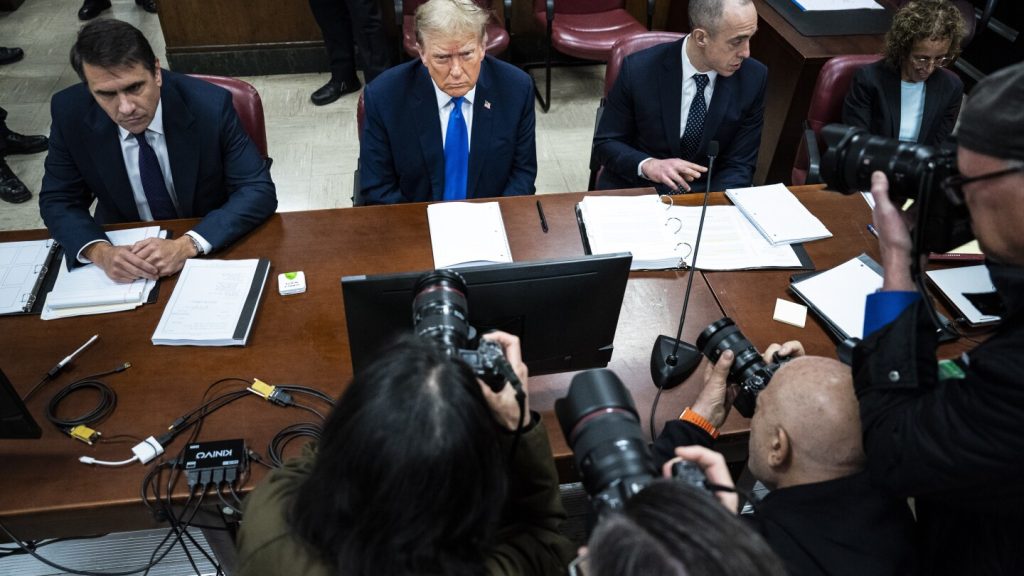Judge Juan Merchan in Donald Trump’s hush money trial has ordered the media not to report on potential jurors’ workplaces and to be cautious about revealing information about those participating in the trial. This decision came after a juror was dismissed due to concerns about her identity being publicly known. Merchan directed journalists not to report specific details heard in court about potential jurors, putting them in a difficult position regarding freedom of press. While judges typically cannot control media reporting, there are options available to protect juror anonymity, such as restricting what reporters see and hear in the courtroom.
Despite the challenges, 12 jurors were seated by the end of Thursday for the historic trial in which Trump is charged with falsifying business records to cover up payment to Stormy Daniels. New York state law mandates trial attorneys to have access to juror names, but the judge has prohibited the disclosure of these names publicly. Information revealed in court about potential jurors, such as where they live, work, and their personal backgrounds, raised concerns about their anonymity. Some news organizations have provided personal details about jurors, which could potentially lead to identification.
The issue of maintaining juror anonymity has become a significant concern in high-profile cases like Trump’s, where public interest and opinions are strong. Anonymous juries have long been present in cases involving terrorism or organized crime to prevent tampering. In this trial, limiting media reporting on physical descriptions, accents, and other personal details to protect juror identities is a priority. In the past, certain measures have been taken to secure jurors’ anonymity, including restrictions on electronic devices during trials and driving jurors to and from the courthouse by security services.
During the jury selection process for Trump’s trial, both sides are interested in preventing biased jurors from influencing the outcome. With extreme viewpoints prevalent in the public’s perception of Trump, the challenge lies in identifying jurors with impartiality. Amidst concerns about potential sleeper jurors with hidden agendas, the need to research jurors’ backgrounds has become crucial for both defense and prosecution. The ongoing efforts to maintain juror anonymity highlight the complexities of ensuring a fair trial in cases that attract significant public attention.


